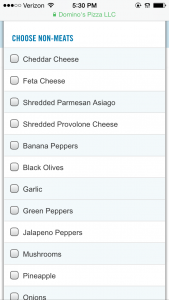
Keyword research is vital for the success of your website and increasing your online presence. If you’re a website owner, you probably rely on what’s tried and true: Google Keyword Planner. But guess what? So does everyone else.
Finding the right keywords is essential, because it not only helps you develop a good list for PPC and SEO, but it also helps you figure out what topics to write about for content marketing.
There are also a ton of different types of keyword terms you can choose, from branded keywords to product, competitor, and audience terms. They’re all great options to include in your online strategy. You can also choose to use long-tail, negative keywords, or broad and exact match keywords.
Don’t get me wrong, paid keyword tools are still great resources for diving into deeper analytics. But there are several untapped resources for developing more unique keyword strategies. Here are some free alternative ideas to help you get creative with your keyword research.
Wikipedia
If you haven’t heard of Wikipedia, you might be living under a very large rock. It has information on everything and anything, but did you also know it’s a good place to go for keyword research?
When you search for something on Wikipedia, there’s generally a list of related terms and acronyms in parenthesis within the first or second paragraph. Those are all great options for additional keywords to research and use, because there’s a pretty good chance other people are using those terms to search for what you’re trying to target.
Plus, if you scroll to the bottom of a Wiki page, there’s usually a “See Also” section that gives you related topics that you can peruse for keywords.
Source: Wikipedia
Metaglossary
Metaglossary is an easy-to-use site equipped with a simple search bar where you can input your topic or initial keyword.
Once you search for that topic, Metaglossary not only pulls definitions from a bunch of different sites, but you’ll also get a list of the big keywords related to that term. A quick search for “pay per click” gives you all the possibilities in the image below.
Source: MetaGlossary
Übersuggest
Übersuggest is a free keyword generator and is especially helpful if you have a broad keyword that you want to narrow down. All you have to do is type in your keyword, and Übersuggest gives you a list of keyword variants sorted by letter and number.
Plus, for visual purposes, you can also view some of the keyword suggestions in a word cloud, like the one for “pay per click” below.
Source: Übersuggest
Answer the Public
Similar to Übersuggest, Answer the Public is a keyword generator. But, instead of showing only keyword variations, it shows you the questions that people might ask in relation to that keyword. Answer the Public then groups the keywords by question, preposition, and alphabetization.
Essentially, it allows you to take a deeper look into how people actually search by giving you the potential questions web browsers might use as queries.
Source: Answer the Public
This tool could also go a step further than keywords and be used to generate topics for your site’s content. After all, you want to make sure your content is answering the commonly asked questions related to your services or product.
SpyFu
SpyFu allows you to look into your competitors simply by putting their domain into the search query. While you can’t view all the information for free, SpyFu does give you some insight into your competitors’ SEO efforts.
You’ll be able to see every place your competitors have shown up on Google, every keyword they’ve bid on in AdWords, every ad variation, and every organic rank from the last nine years.
SpyFu will break down a monthly domain overview, showing how many paid vs. organic clicks came from Google and also their top organic and paid competitors. It’ll also break down both organic and paid keywords that you share with your competitors, list their top organic and paid keywords, and give you their AdWords and ranking history.
Online Reviews
What better way is there to see how your customers talk about your company than by actually reading their reviews? You should really be monitoring online reviews anyway in order to improve your customer service.
By reading online reviews, you’ll not only be able to see what your customers praise or gripe about, but you’ll also be able to see what key phrases and terms they use to discuss your product. That’ll help you narrow down your keyword choices, because you want to make sure you’re targeting keywords your customers will actually use.
If you want other ways to see how your customers are discussing or inquiring about your business, you can also look at your customers’ queries and searches typed into online submission forms or your site’s search bar.
A Thesaurus
You can go old school and dust off the thesaurus that’s been sitting on your shelf since junior high, or you can check out an online thesaurus.
Whichever you choose, a thesaurus holds a massive amount of potential keywords in the form of synonyms, as well as related terms and their synonyms.
Say you want to target a very broad keyword, like advertising. If you search for that on Thesaurus.com, you’ll get 27 synonyms. But, you’ll also get a ton of words related to advertising (like publicity, promotion, and propaganda) and their synonyms. Sure, not all of them will work for you, but it’s a great place to find words you might not have thought of.
Source: Thesaurus.com
Time to Get Crafty
Before you jump on board with a keyword tool that will cost you hundreds (if not thousands) of dollars a year, make sure you’re exhausting all of your free options first. There are plenty of ways to think outside the SEO box in order to discover unique and creative keywords that might just give you the boost you need to stand out on a SERP.
Digital & Social Articles on Business 2 Community(80)







